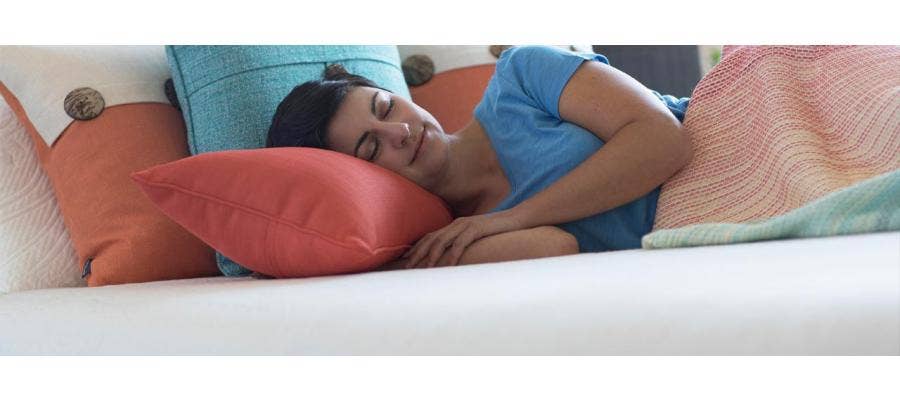
Did you know how your bedroom looks and makes you feel can directly affect how well you sleep? If you go into your bedroom and become anxious about not sleeping, then you will most likely spend the night tossing and turning rather than having sweet dreams. The temperature of your sleep space and darkness also have a big impact on the quality of your sleep. Here’s how to make your bedroom the perfect environment for sleep.
Create a Visually Appealing Space
Clutter has been shown to reduce our sleep quality. So it's best to keep your bedroom as neat and clutter-free as possible. This means keeping clothes in the closet or dresser and also making sure you don’t have too much artwork or photos on the walls.
Light from the sun and artificial lights suppress melatonin so you want your room to be pitch black, which means that blackout shades and curtains are key. Or if blacking out your room is impossible, then sleeping with an eye mask will work to keep the light out of your eyes.
Use Smells for Relaxation
Surprisingly, our sense of smell is important for sleep, too. Relaxing scents like lavender and chamomile work great for winding down at night.
"Lavender has been shown to decrease heart rate and blood pressure, potentially putting you in a more relaxed state," according to the National Sleep Foundation.
Essential oils are a perfect way to incorporate smell into your sleep routine. You can lightly spray oil diluted with water on your bed before crawling in, put a drop or two on your hands and feet, or fill your diffuser with a soothing scent.
Drown Out Excessive Noise
White noise from a fan or sound machine helps to drown out external noise that can keep you awake. Also, listening to relaxing music before bed can help your mind relax so that you fall asleep easier and faster.
Keep Your Space EMF-free
The electromagnetic frequencies (EMFs) from cell phones, microwaves, computers, etc. have been shown to cause sleep disturbances. For this reason, I suggest keeping these devices out of your bedroom or turning them on airplane mode while you’re sleeping.
Keep Your Space Cool and Comfy
A cool temperature between 60 and 67 degrees has been shown to be best for sleep. Your body temperature naturally drops before bed so if your room is too hot, it can disrupt your sleep.
Being comfortable is key to a good night’s sleep, too. So soft sheets and a comfortable mattress are key. Toxins from your environment cause inflammation, which can keep you awake at night. That’s why I’m passionate about using organic, non-toxic bedding and mattresses.
I hope these tips help you make your bedroom as cozy and comfortable as possible so you get a good night’s sleep!
About the Author
Martha Lewis is a sleep consultant to health-conscious, high achievers who despite their best efforts cannot figure out how to sleep. She combines physical insight through lab testing with stress resilience techniques to help her clients sleep in a holistic and efficient way. She has been featured in numerous publications and various podcasts in the US and is also a passionate speaker on the topic of sleep.
If you want to sleep but can’t, join my Facebook community Sleep Well Live Well to learn all about sleep and how you can get the sleep you need to live your best life. Email completesleepsolution@gmail.com. www.TheCompleteSleepSolution.com
